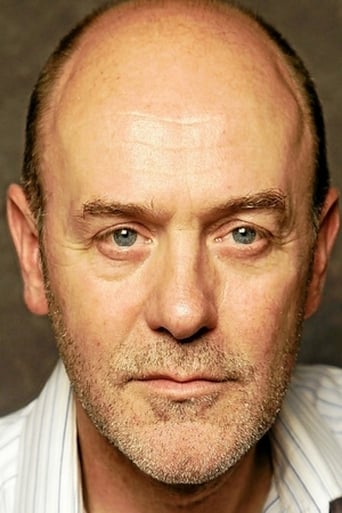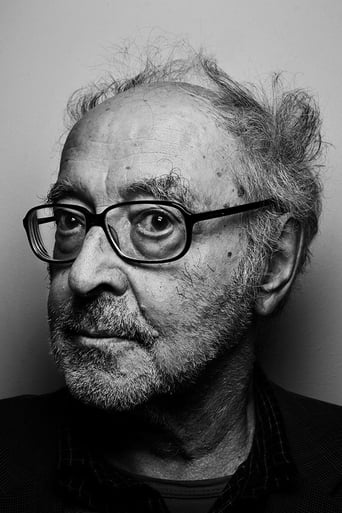ansar-m6
Prologue:
From 1967 and 1979 Godard abandon his new wave roots, and committed himself to producing political films. Of which made certain foreign critics distance themselves from Godard, leaving him rarely discussed and ignored for a decade. This seems to make his post new wave work not canon, Pierrot Le Fou was apparently his last film. But the 80s saw a return to Godard's new wave esque subject matter, rewarding his frequent viewers with intertextuality, and taking over the narrative surrounding his legacy up to that point.In an 1980 interview, televised on the American television talk show: the Dick Cavett show; Godard promotes the first of his post-new wave films "Slow Motion". Cavett begins by asking honestly and softly, "The word comeback has been used to describe this film (Slow Motion), does that word "comeback" offend you in anyway?". Godard tenderly responds with, "In a sense because.. i never went away. Maybe I was pushed away, and to me, i'd rather say that this the reverse of "comeback", a.. what would you say, a come-fourth or go-forth..", with Cavett reiterating, "a continuation". Which is an interesting contextually when viewing First Name: Carmen. Actually to view any of Godard's films requires some understanding of context, as Godard is actually neither mysterious nor cryptic. In Breathless, the use of jump cuts, the characters as reference to Hollywood Noir films: the story, the sound, the edit, the camera, the actors; Godard makes every aspect of his film a character, to highlight and analyze and subvert. In Godard's early work, he sought to subvert every conception of what film grammar was. Context was his gun, the film reel the revolver, the image the bullet. The result is a sort of reflexive idiosyncratic lucidity. Yes I made that phrase up, yes it's super pretentious, but look up each word and combine it, and you'll just get what I mean. Godard makes his films with the atmosphere of the movie theatre in mind, he knows it is his canvas, so the way he expresses himself on this form is almost painterly or symphonic, he projects a thematic cinematic quality, a "Je e sais quoi" that all great filmmakers have. That's an update on Godard up to this point. I'll now break down First Name: Carmen.
Review:
Godard's "Prename: Carmen", with Maruschka Detmers as the titled character: follows a young woman who asks her Uncle, a faux-senile ex-filmmaker played by Godard himself, to help herself and her associates produce a documentary. In the meantime, Carmen and her posse rob banks and plan kidnappings as a means for... crowd funding. On a very casual heist, a handsome security guard attempts to fight off the robbers, but ends up falling in love and running away with Carmen instead. Godard explores love, lust, society, and his reputation all within the intertextual package of Raoul Coutard's (15th and final collaboration w/ Godard) subtle and dreamy cinematography. Godard plays with the idea of his reputation, he plays an old filmmaker outed from the industry. While his niece wants to help him make a comeback, the film that she suggest they make.. seems to play out within this very film, they are in the film talking about the film itself. The documentary she wants to make is the fiction of which is this film, of which Godard directs within outside the film. Is the story of a film another character, one who you can't even gossip about since he's in the room? This is post-modernism btw. Uncle Jean even wonders to one of Carmen's filmmaker friends, over cigarettes and coffee: "You're not making a real documentary, are you?", "I hope that documentary is fiction.". That scene within itself allows Godard to contemplate his own film while he is simultaneously immerse in its frame. I think you get it.He even features randomly cuts to group of orchestral musicians playing the score of the film that was just overlapping the story. They give each other notes, they are in front of an being the frame of the image. Godard shows the character behind the character of his film.Carmen, with the handsome security guard played by Joseph Bonnaffé, folic around in Uncle Jean's condo after the heist, the location she got the green light to shoot the documentary. Again, Godard references himself, a long scene with a couple going back and forth about their ambitions. As Breathless was of foreplay, and Le Mepris of dissolution, Godard comments on the nature of the male and female relationship in general. The elusive femme fatale, the aggressive male courter. Enchantment and disenchantment. Lustful aggression, every push is a kiss. He rips open her shirt, he gets on his knees and lays his head on her tender bare chest, "Why do women exist". She calls him Jo instead of Pierrot, he corrects her, it's Joseph. "If I love you, that's the end of you". Adjacent to jarring cuts to crashing waves on the shore, always moving, glowing, tranquil, full of beauty and terror, like rushes of blood, like sex and heaven.The documentary is now to be shot in a Paris hotel, a nicer one than Patricia's. The relationship dissolves there, Joseph can now only touch the empty static of the television, nothing and no one to turn to. She's disgusted by him, his love was the end of him. Uncle Jean agreed to shoot a casino film when he talked over coffee and cigs with one of Carmen's friends. The posse plans to kidnap a rich father and daughter their. Joseph wants to get in on the plan, but he's excluded, he won't give up on Carmen. The kidnapping fails, Joseph shoots Carmen, lovers are cowards. They are "innocent and guilty", even when all is lost, we will still wake up the next day. New again. Closing:
Two mysteries left with this film. There is this documentary on you tube called "Jean-Luc Godard / Anna Karina" which details their relationship. But also reveals that each of his films from Vivre Sa Vie to Pierrot Le Fou, are subtly and not subtly layered and even revolve around how he fell in not out of love with Karina. Which leaves me to question what the relationship in this film is a reference too.That's as much as I could articulate in words what Godard was conveying in this film at the moment, i've only seen it once. It is one of his most dense and articulate pieces, an incredibly over looked gem. I suggest becoming familiar with Godard's other works and the context behinds those films as well, as this film rewards you with subtle homage, layered with new context. I hate this phrase, Godard's Prenom: Carmen is a tour de force. Be warned, only watch this after your 6th or 7th Godard film, and maybe a documentary, and interview.
aklcraigc
This is the second time I've watched this film, obviously, my memory had faded sufficiently after the first time, otherwise I would not had undertaken such an arduous task. Every scene reeks of Godard's dated, disgusting intellectual pretensions, the guy hates everybody and everything. Actors annoyingly overact their way through every scene, obviously having no idea what their characters are meant to be doing, or where the 'plot' is going. The 'action' sequences contain heavy handed symbolism (the usual tripe, the malaise of the bourgeoisie etc.) which I suspect are meant to be funny, but just come off as intellectually lazy. Godard inserts himself as some kind of shamanic figure who throws out philosophic gems which would sound embarrassing coming from a teenager, he also finds time to flick his cigar ash into other people's food and seemingly attempts to molest his niece in one of the initial scenes, that crazy Godard! In the end, it's just a redundant exercise in breaking all the rules, there is no transcendence or insight here, all we have is the empty, stillborn descendant of Duchamp's toilet.
bcarlos
Prénom: Carmen follows a young woman as she falls in love with a security guard who works at a bank she and her friends rob. Hiding in a house near the sea, they share a love that is marked by the impossibility of it to be. The film has some wonderful images, music and scenes, but my main problem with it is that I don't know who these characters are, I never connect with them. We have a truly beautiful love story in front of us, but one that feels really empty and rather forced.A scene that had the potential to be heartbreaking (the scene with the television) remains as a rather laughable and pretentious one. This isn't the actors' fault, actually the performances are excellent, mostly Maruschka Detmers' as Carmen, but it is Godard's fault for not deepening at all in the characters. They come together, they break up, they try to return, but I don't care whether they end up together or not.The film though has some wonderful recurring images, mostly the string quartet that plays Beethoven often softly often aggressively as the relationship goes through different stages. Two trains cross each other coming from different directions when the lovers come together or apart and constant images of the waves at the sea are also some other recurring scenes. All these images are extremely beautiful, as are all the angles from the normal scenes of the film. The lights are all very carefully thought of and the film, despite its slight pretentiousness and the little interest we have for its characters, manages to be very entertaining and has a hilarious bank robbery scene. Godard also appears as probably the most interesting character. He plays himself and lives in a mental hospital for being the only completely sincere person in the film and doing and saying whatever he wants all the time.Prénom: Carmen is a surreal impossible love story with wonderful performances and direction, an engaging soundtrack and a love story we don't care about.Rating: 2.5/5.



